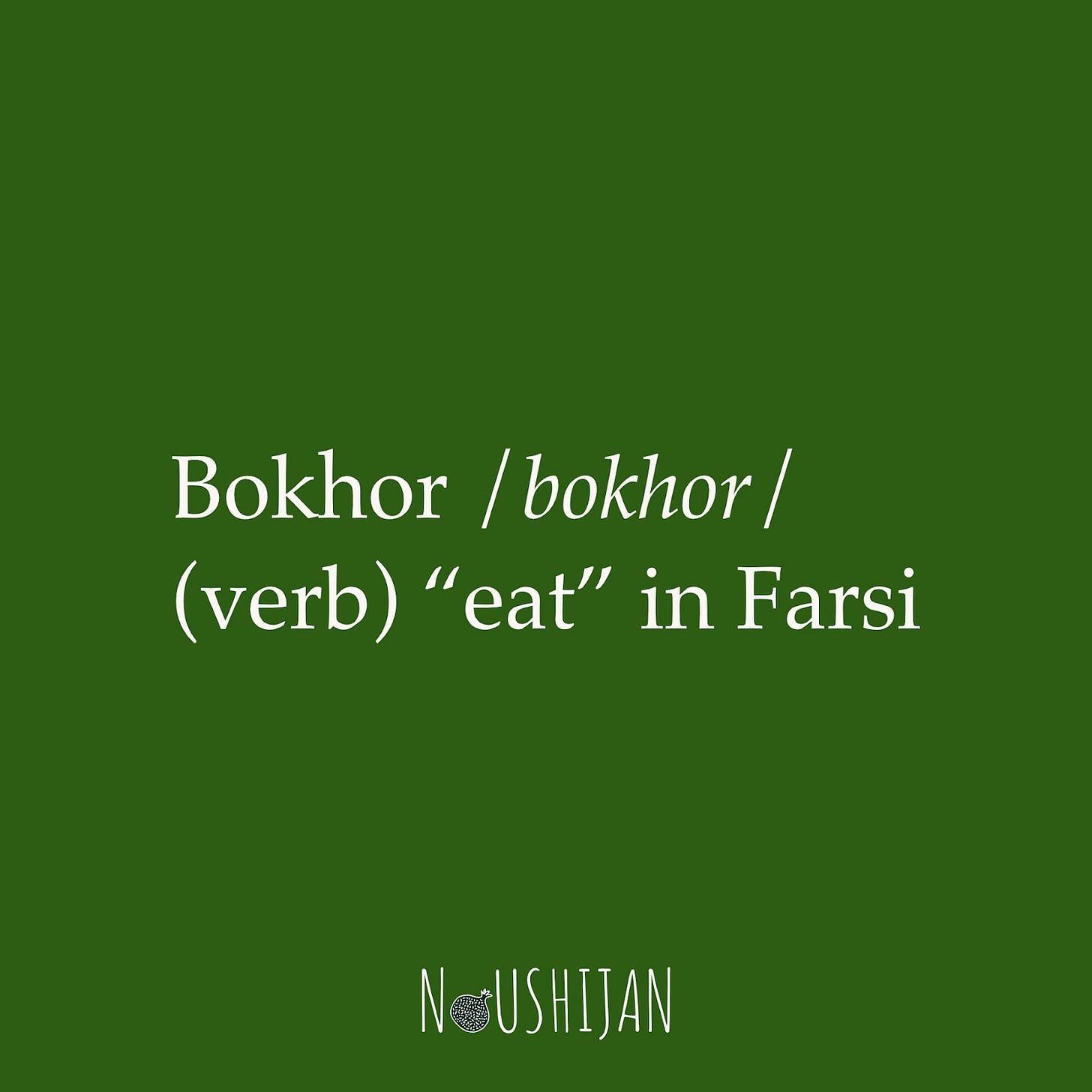Bokhor: a culture, a love language, a command
Eat your food. Finish your plate. In my Persian home, we say “Bokhor.”
Bokhor translates to “eat” but its implied meaning is deeper and more complex. It means: eat up, eat more, eat as much as possible, take more food, indulge. It’s a very passive-aggressive (maybe mostly aggressive) thing that people say. There’s an insistence to it.
Part of Bokhor is hospitality. Feeding someone your food is a love language, a way of showing care and affection. It’s something I have carried into my own home and even through my blog. It’s this cultural desire to nourish the people around you by making sure they’re fed and taken care of. It’s coming from a place of love.
Another part of Bokhor is pride. Pride in cooking and in the quality of the meal you’ve provided. You don’t want anyone to leave your house feeling hungry or not taken care of in your home. And it’s not just about eating the food right there and then; it’s also about taking it home. When I go to dinner at my aunt’s, grandma’s, or mom’s, they always want to send me home with a to-go box filled with food for a whole week. Once my mom even tried to send me back to college (via airplane) with a frozen chicken… more on that another time.
But there are also damaging layers to Bokhor.
Recently, my sister came to visit and we got sushi from a restaurant known for their gigantic servings (check out Saburos in Portland, OR if you’re curious). It’s really hard to gauge how much to order. You think, “I’ll only get six pieces of sushi,” and it ends up being A LOT. We had all this extra food, so I suggested we eat it the next day. My sister said, “Everyone just take one more… Bokhor!” with enthusiasm and a giggle.
Bokhor is pushy. At every meal growing up, and at family gatherings, we are encouraged (with much pressure) to eat beyond the point that we stop feeling hungry. It always makes me uncomfortable. And if you don’t eat, you’re insulting the person who spent their whole day cooking
It’s a pattern. I put the amount of food I want on my plate and then someone comes and piles even more food with cries of Bokhor. And now there is an insurmountable amount of food that I have to finish. But I don’t want to.
The part of Bokhor that was damaging for me was how it prevented me from learning what my body needed or wanted. The idea that you have the choice to stop eating when you feel full is completely removed. I could only stop eating when someone else deemed I’d had enough… a moment that never really came.
Embracing the essence of “Bokhor” now can look different than the way I knew it growing up.
As I’ve gotten older, I’ve actively embraced eating proportionally and intuitively. It’s where my blog Proportional Plate got its name. I believe in eating foods in amounts that feel good for my body and trusting myself to make those decisions. I keep working on listening and learning from my body, and it’s an active journey to prioritize my nourishment and eat without overeating, or without feeling guilt around food.
But even now, in my own home, Bokhor has a presence. After my sister said, “Bokhor,” we all laughed. But she was only half-joking. She genuinely wanted us to finish all the food, for reasons she couldn’t quite explain. She said it half-knowing she really shouldn’t, but couldn’t help it. It revealed a weird compulsion so deeply ingrained in our culture.
Iranian culture is filled with so much love and intensity – you can feel it in the language, music, and especially in someone’s home. I love this about my culture, and yet I want to be more conscious about which pieces I bring into my life.







